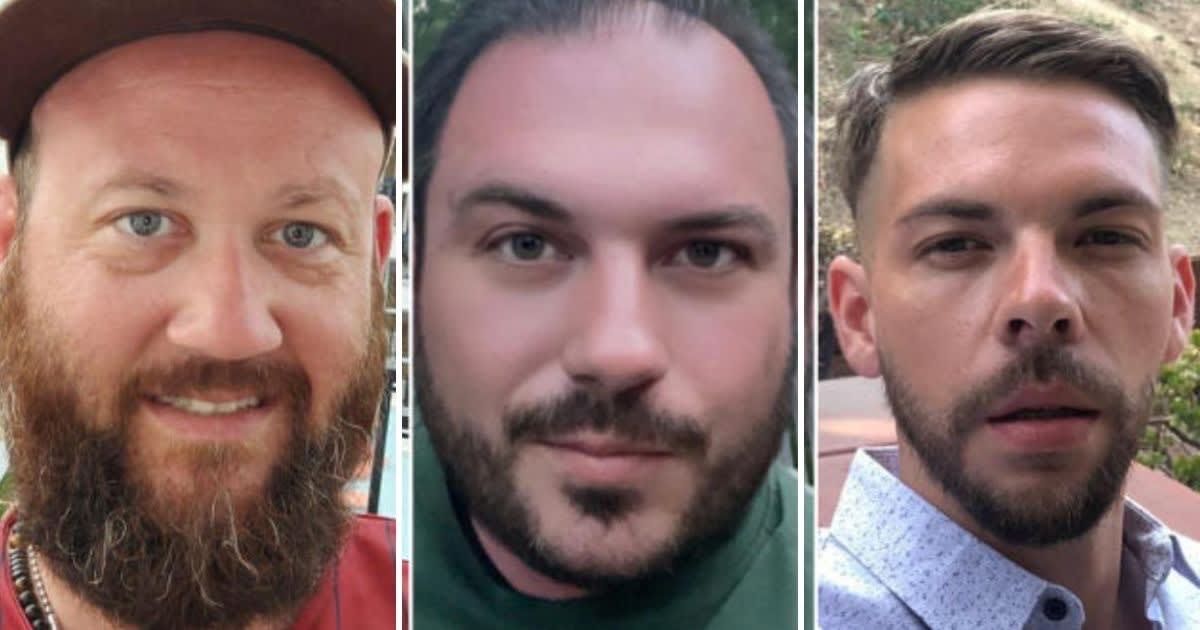Investigation reveals potential drug involvement after three Chiefs fans found frozen to death in friend's backyard

KANSAS, MISSOURI: Three men were found frozen to death outside their friend's Kansas City home on January 9, just two days after they had gathered to watch a Chiefs game.
The families are seeking answers after weeks of what they perceive as inconsistent information from the men's friend and attorney regarding the timeline of the perplexing deaths.
Furthermore, a doctor suggests that it is "plausible" that the three individuals had been exposed to some form of drug, potentially contributing to their unusual and tragic demise, according to NY Post.
Three friends found dead after Kansas City Chiefs game
Dr Caleb Alexander, an epidemiologist with Johns Hopkins University, told The Post, "It's one thing for a person to tragically end up in a snowdrift after leaving a bar. But it’s a completely different story for three people to end up dead sitting on somebody’s back porch after a party."
"The fact that there’s three individuals really heighten the curiosity and the tragedy of this case and, I think, increases the likelihood that something more than moderate amounts of alcohol were at play here,” he added.
In the case, Clayton McGeeney, 36, David Harrington, 37, and Ricky Johnson, 38, were found dead in the backyard of their friend Jordan Willis’ house on January 9, two days after the group had supposedly left after watching a Kansas City Chiefs game on January 7.
Mysterious circumstances surrounding Michael Willis' garden
Upon McGeeney's fiancee's request for a welfare check, prompted by his failure to return home on Sunday and Willis' lack of response to calls or inquiries, the police uncovered the three deaths.
Reportedly, Willis answered the door while holding a wine glass and informed the police that he was unaware of his friends being found dead in his garden.
John Picerno, Willis' lawyer, asserted that for two days, his client had been sleeping next to a loud fan and using noise-canceling headphones. During this time, the relatives of his friends made desperate attempts to contact him and locate the missing individuals.
Since the police first got involved, Willis has cooperated with them. Authorities have stated that there is no reason to suspect foul play, Willis is not under investigation, and the deaths are not deemed suspicious.
The circumstances seemed to result from a perilous combination of alcohol and opioid-like medications to which the individuals may have been "either intentionally or unintentionally" exposed, as stated by Alexander, a specialist in drug usage and safety.
“It certainly could be consistent with opioids, benzodiazepines, antihistamines, barbiturates, muscle relaxants,” he said, noting all he could do was speculate until toxicology reports came back.
"There are dozens of potential prescription drugs that when combined with alcohol could cause a level of sedation that would lead to ultimately freezing to death,” Alexander said, listing common drugs like Xanax and Ativan, Valium, and carisoprodol as possible culprits.
“Any of these with alcohol acts synergistically with many prescription drugs to increase their potency, and their potential to cause sedation and other adverse effects,” he added.
"One of the many tragedies of the opioid epidemic is that all too often people overdose and it can happen easily in groups as well as when people are solo,” Alexander said.
"That could account for three individuals rapidly losing consciousness and ultimately succumbing from the weather,” the doctor said.
However, he also added, “They didn’t necessarily have to die from the drugs, they could have just frozen, frozen to death.”
"When you’re just sitting there, you are not generating any body heat, that’s darn cold. Plenty cold enough to die in, let’s put it that way,” he said.
Contrarily, Willis' attorney dismissed the claims as "ridiculous" and emphasized that there had never been any allegations of animosity between the friends.
The Kansas City Police Department is awaiting the results of autopsies and toxicology reports, with Alexander emphasizing that these findings will be crucial in unraveling the mystery. "The toxicology here is mission critical," he stated.










